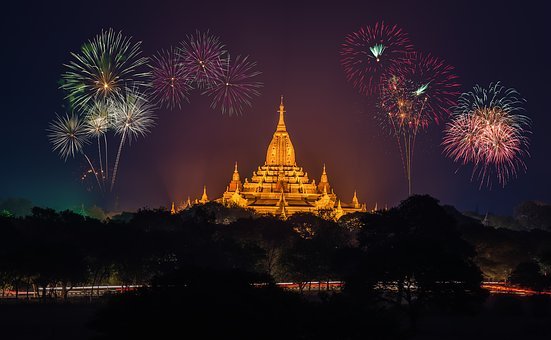“On the American side, several mistakes – many of these tactical and related to domestic politics – have produced a dangerous reality: there are no serious bilateral relations between the two most influential players of the 21st century.” Fareed Zakariain an opinion published online in the Washington Postframes the visit to Taiwan of the president of the American House of Representatives, Nancy Pelosiwithin the bad relations between the United States and China, adding that the speaker “would have liked to visit him months ago”.
You can start from here to tell the tension of these hours, which comes from afar. Was it a useful visit or a counterproductive visit? The first to answer was Pelosi herself. To those who asked her at the press conference if she believed that her visit had brought benefits to the island or not, the president replied that it is a “ridiculous” dispute, adding that the Asian country is one of the “freest of the world”. One thing is certain, she added during her last leg of the Asian tour in Japan, the US “will not allow” China to isolate Taiwan.
The same initial question is answered by profoundly different answers from China and Russia. Beijing has decided to impose unspecified sanctions against the speaker of the House of Representatives and his closest family members, the foreign ministry announced. The explanation is sufficiently broken down. “In contempt of China’s grave concerns and firm opposition. Pelosi insisted, going to visit the Chinese region of Taiwan. This constitutes gross interference in China’s internal affairs. It seriously undermines the sovereignty and territorial integrity of China, seriously interferes with the one China principle and seriously threatens peace and stability in the Taiwan Strait ”. The sanctions, therefore, according to China, come “in response to Pelosi’s blatant provocation”.
Beijing, of course, has the full support of its Russian ally. “China is acting legitimately to defend its sovereignty,” insists the Kremlin spokesman. Dmitry Peskov. “These provocations do not remain without repercussions”, Peskov said in the statements reported by Tass, convinced that “the tensions do not subside so quickly”.
Before that, there was the American reaction to the escalation of the military exercises in Beijing. The Chinese ambassador to the US was summoned to the White House to “condemn the escalation of Beijing’s actions against Taiwan” and reiterate that the US “does not want a crisis in the region”, after Nancy Pelosi’s visit to the island and the growing tensions, writes the Washington Post. “After China’s actions in the night – says White House official John Kirby in a statement provided to the Post – we summoned Ambassador Qin Gang to the White House” to protest China’s “provocative actions”. “We condemned China’s military actions, which are irresponsible and contrary to our longstanding goal of maintaining peace and stability in the Taiwan Strait.”
The Post highlights how the White House tried to dampen tensions with China before and during Pelosi’s visit to Taiwan, which Beijing considers a “rebellious province” and on which it does not tolerate “interference”. The US Secretary of State Antony Blinken during a press conference on the sidelines of the ASEAN summit in Phnom Penh, Cambodia, he closes the circle: “China has chosen to overreact and to use President Pelosi’s visit as a pretext to increase provocative military activity in and around the Taiwan Strait “. The US Secretary of State reiterated that the United States “does not support Taiwan’s independence”. Because, obviously, it is also necessary to reiterate it officially.
Taiwan, the choice of Nancy Pelosi and the “strange” Chinese reaction

